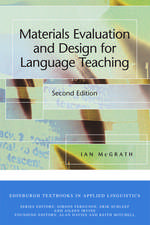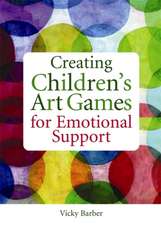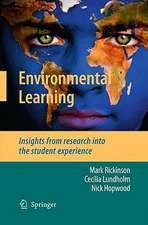Problem Solving in Mathematics Education: ICME-13 Topical Surveys
Autor Peter Liljedahl, Manuel Santos-Trigo, Uldarico Malaspina, Regina Bruderen Limba Engleză Paperback – 6 iul 2016
Din seria ICME-13 Topical Surveys
-
 Preț: 136.40 lei
Preț: 136.40 lei -
 Preț: 136.40 lei
Preț: 136.40 lei -
 Preț: 136.40 lei
Preț: 136.40 lei -
 Preț: 136.02 lei
Preț: 136.02 lei -
 Preț: 136.40 lei
Preț: 136.40 lei -
 Preț: 136.40 lei
Preț: 136.40 lei -
 Preț: 136.40 lei
Preț: 136.40 lei -
 Preț: 136.24 lei
Preț: 136.24 lei -
 Preț: 136.24 lei
Preț: 136.24 lei -
 Preț: 136.02 lei
Preț: 136.02 lei -
 Preț: 136.24 lei
Preț: 136.24 lei -
 Preț: 136.40 lei
Preț: 136.40 lei -
 Preț: 136.02 lei
Preț: 136.02 lei -
 Preț: 136.02 lei
Preț: 136.02 lei -
 Preț: 136.40 lei
Preț: 136.40 lei -
 Preț: 135.47 lei
Preț: 135.47 lei -
 Preț: 136.02 lei
Preț: 136.02 lei -
 Preț: 135.85 lei
Preț: 135.85 lei -
 Preț: 137.38 lei
Preț: 137.38 lei -
 Preț: 136.02 lei
Preț: 136.02 lei -
 Preț: 136.77 lei
Preț: 136.77 lei -
 Preț: 136.99 lei
Preț: 136.99 lei -
 Preț: 136.02 lei
Preț: 136.02 lei -
 Preț: 136.40 lei
Preț: 136.40 lei -
 Preț: 136.77 lei
Preț: 136.77 lei
Preț: 136.24 lei
Nou
Puncte Express: 204
Preț estimativ în valută:
26.07€ • 27.29$ • 21.70£
26.07€ • 27.29$ • 21.70£
Carte tipărită la comandă
Livrare economică 31 martie-14 aprilie
Preluare comenzi: 021 569.72.76
Specificații
ISBN-13: 9783319407296
ISBN-10: 3319407295
Pagini: 35
Ilustrații: VII, 39 p. 9 illus.
Dimensiuni: 155 x 235 x 3 mm
Greutate: 0.08 kg
Ediția:1st ed. 2016
Editura: Springer International Publishing
Colecția Springer
Seria ICME-13 Topical Surveys
Locul publicării:Cham, Switzerland
ISBN-10: 3319407295
Pagini: 35
Ilustrații: VII, 39 p. 9 illus.
Dimensiuni: 155 x 235 x 3 mm
Greutate: 0.08 kg
Ediția:1st ed. 2016
Editura: Springer International Publishing
Colecția Springer
Seria ICME-13 Topical Surveys
Locul publicării:Cham, Switzerland
Cuprins
Main Topics You Can Find in this “ICME-13 Topical Survey”.- Introduction.- Survey on the State-of-the-art.- Summary and Looking Ahead.
Textul de pe ultima copertă
This survey book reviews four interrelated areas: (i) the relevance of heuristics in problem-solving approaches – why they are important and what research tells us about their use; (ii) the need to characterize and foster creative problem-solving approaches – what type of heuristics helps learners devise and practice creative solutions; (iii) the importance that learners formulate and pursue their own problems; and iv) the role played by the use of both multiple-purpose and ad hoc mathematical action types of technologies in problem-solving contexts – what ways of reasoning learners construct when they rely on the use of digital technologies, and how technology and technology approaches can be reconciled.
Caracteristici
Surveys the state-of-the-art in research on mathematical problem-solving Discusses the work of key researchers in the area Highlights potential directions for future research Includes supplementary material: sn.pub/extras








